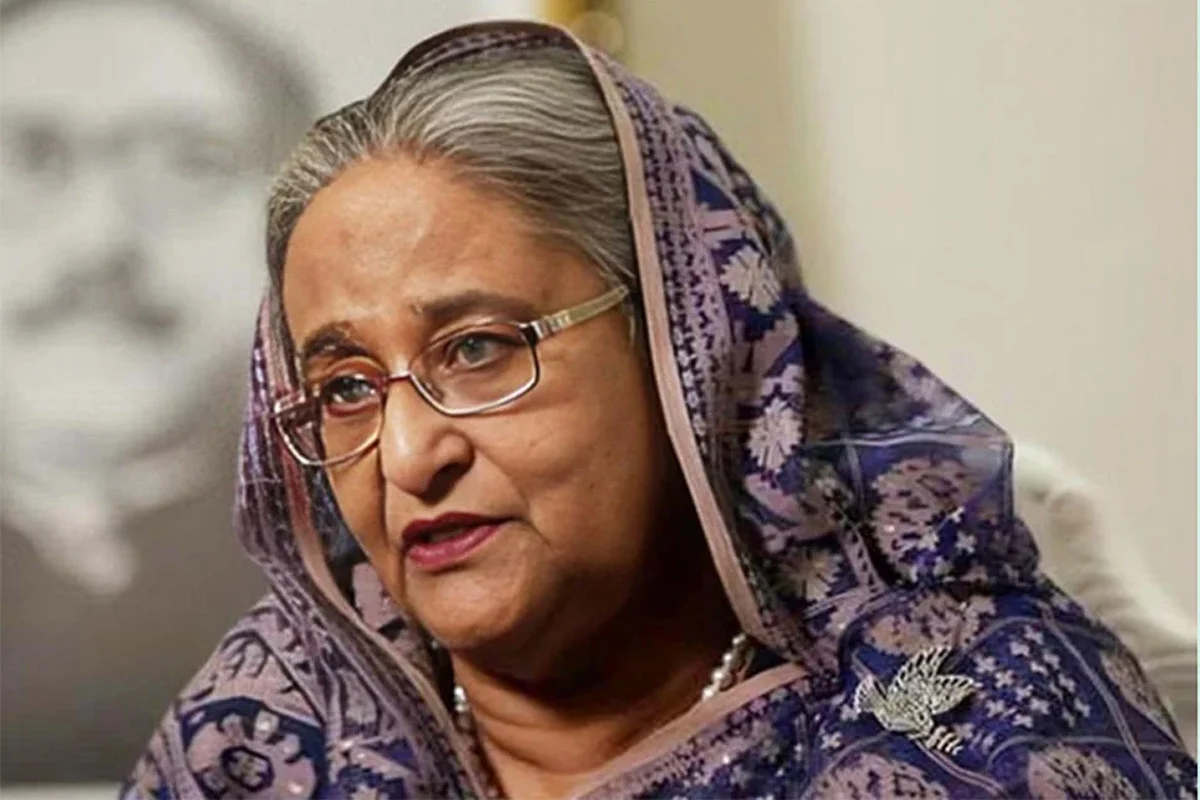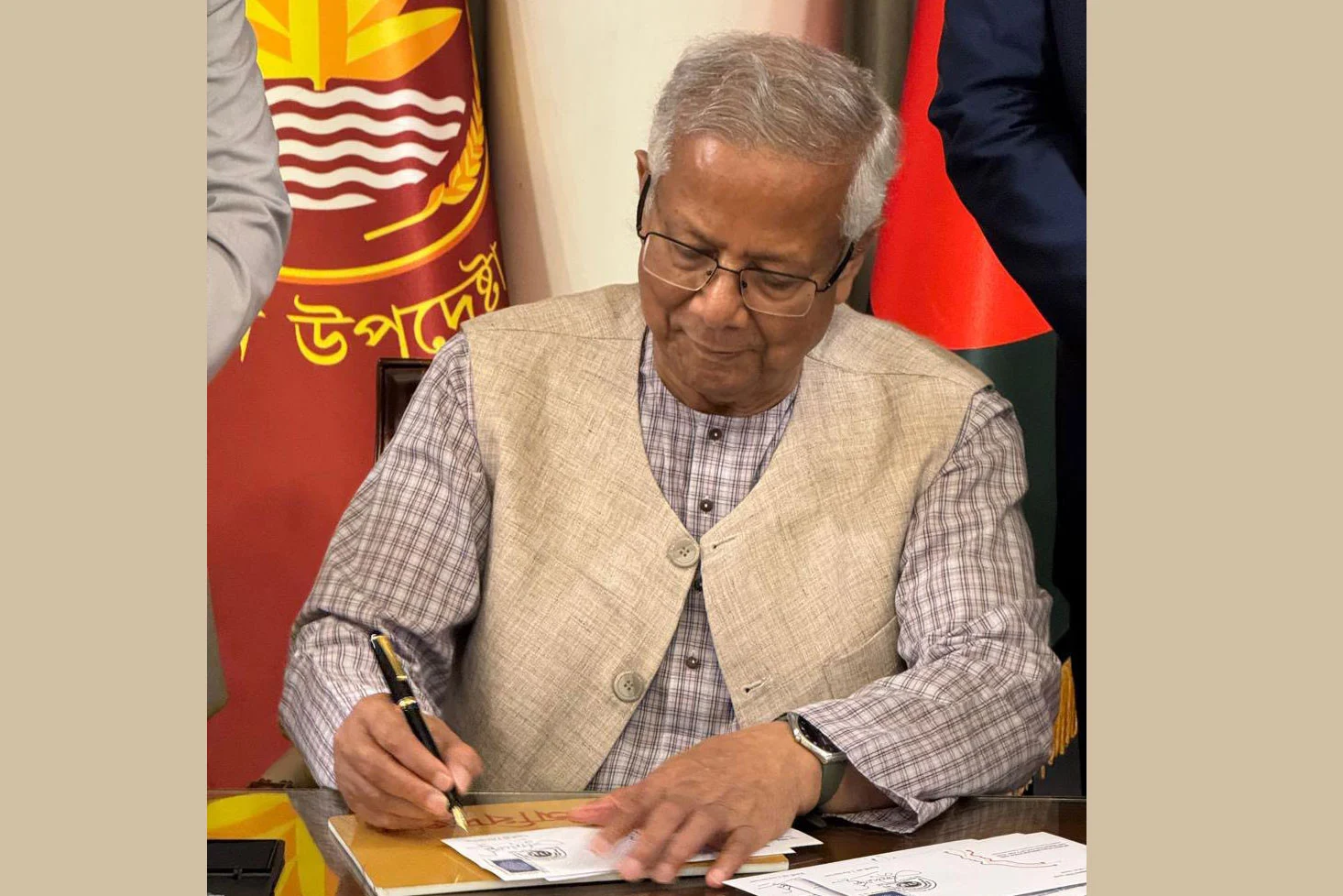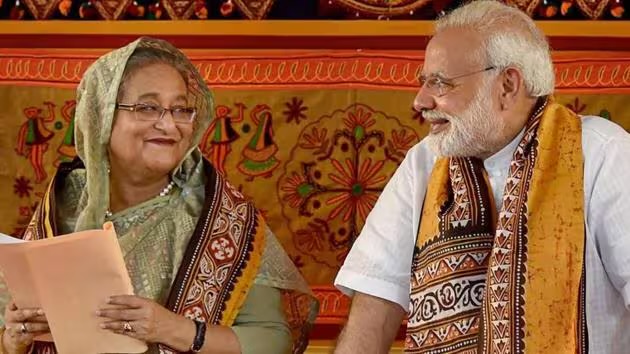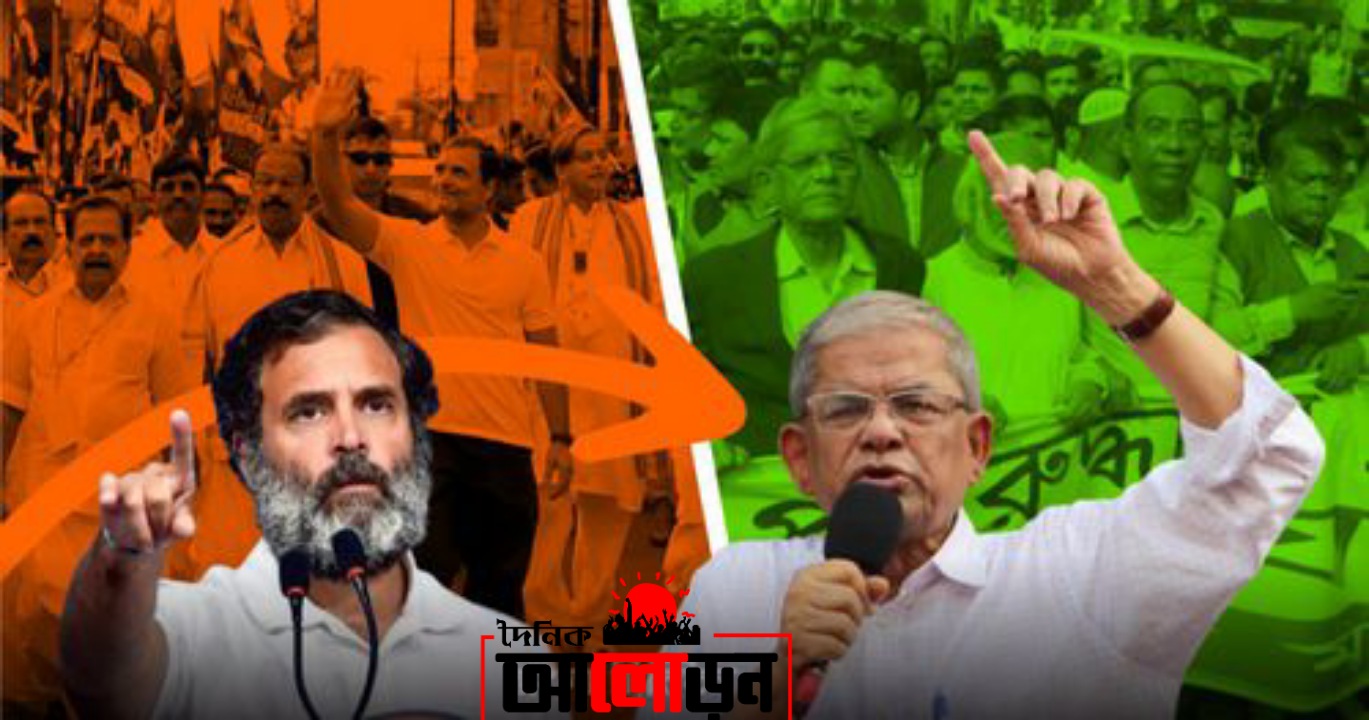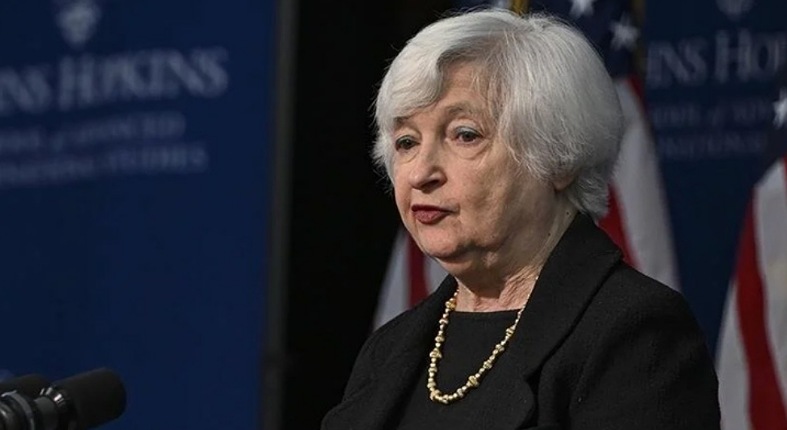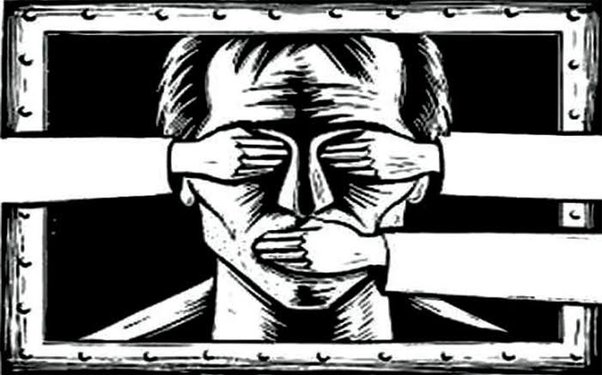
Apurbo Ahmed Jewel: The issue of discussing freedom of thought in Bangladesh at this moment is perhaps the riskiest subject. However, no matter how risky it may be to say, and it must be said, and it must be kept in writing. Otherwise, Fascist Hasina will think everyone is afraid, and as a result, everyone will remain silent, allowing her to maintain her Fascist rule.
If we consider each barometer of freedom in a society’s freedom of thought, whether to think or attempt to consider how or from when this freedom of thought has evolved on the freedom of speech, we find that a new method of putting pressure on this freedom has been created. When we look at it, the light is thrown towards the father of the present Prime Minister through another autocratic Prime Minister.
Returning to the core discussion today, let’s consider Article 39 of the Constitution of Bangladesh. This article can be divided into two parts: 1) Freedom of thought and conscience, 2) Freedom of speech and expression. Both ‘freedom of thought and conscience’ and ‘freedom of expression of thought or freedom of expression of opinion or freedom of the press’ fall under the umbrella of freedom of thought.
In this article of the Constitution, the assurance of ‘freedom of thought and conscience without any restriction or ‘infringement’ is given. However, freedom of thought, freedom of expression of thought or opinion, or freedom of the press has not been left untouched. These freedoms have been subjected to certain conditions under this vast sentence. The conditions are, ‘in the interest of the security of the State, friendly relations with foreign states, public order, decency or morality, or in relation to contempt of court, defamation, or incitement to an offense- in all these matters as provided by law…’
Looking at this article, it is evident that although freedom of thought and conscience is assured without any restriction or infringement, freedom of expression of thought, freedom of expression of opinion, or freedom of the press has not been entirely set free. These freedoms have been restricted by placing them under these conditions. Suppose someone says, ‘I am thinking about something, but until I can present that thought through language, can it even be considered ‘thought’? Or, if it is not presented, will Fascist Hasina think that everyone is afraid, and as a result, everyone has fallen silent, so she can maintain her fascist rule?’
When J. B. Bury began writing ‘A History of Freedom of Thought’ (as mentioned in the text), he declared at once that the history of freedom of thought is actually intertwined with the history of freedom of speech or freedom of the press. ‘Freedom of speaking or freedom of expressing opinions without freedom of thought does not make any sense.’
So, the matter stands here: although our Constitution talks about your ability to think freely, when it comes to expressing that thought, you are subordinate, conditional. Now, when it is explicitly mentioned in the Constitution, the conditions that limit your freedom of expression, such as ‘the security of the State’, ‘friendly relations with foreign states’, ‘public order’, ‘decency’ or ‘morality’, it becomes essential to explore the meaning of thought without freedom of expression of thought. Suppose I am thinking about something, but until I can present that thought through language, can it even be considered ‘thought’? Or, if it is not presented, can I be certain that I have erred? Is the existence of that thought contingent on being tested, scrutinized, or proven wrong in the challenging and complex arena of logic?
When considering this article, it becomes apparent that although freedom of thought and conscience is granted, freedom of expression of thought, opinion, or the press has not been left entirely unbridled. It has been confined by conditions. Now, the difficulty arises: can thought have any meaning without freedom of thought? Suppose I am thinking about something, but until I can present that thought through language, can it even be considered ‘thought’? Or, if it is not presented, can I be certain that I have erred? Is the existence of that thought contingent on being tested, scrutinized, or proven wrong in the challenging and complex arena of logic?
When J.B. Bury began writing ‘A History of Freedom of Thought’ (as mentioned in the text), he declared at once that the history of freedom of thought is actually intertwined with the history of freedom of speech or freedom of the press. ‘Freedom of speaking or freedom of expressing opinions without freedom of thought does not make any sense.’
So, the matter stands here: although our Constitution talks about your ability to think freely, when it comes to expressing that thought, you are subordinate, conditional. Now, when it is explicitly mentioned in the Constitution, the conditions that limit your freedom of expression, such as ‘the security of the State’, ‘friendly relations with foreign states’, ‘public order’, ‘decency’ or ‘morality’, it becomes essential to explore the meaning of thought without freedom of expression of thought. Suppose I am thinking about something, but until I can present that thought through language, can it even be considered ‘thought’? Or, if it is not presented, can I be certain that I have erred? Is the existence of that thought contingent on being tested, scrutinized, or proven wrong in the challenging and complex arena of logic?
When considering this article, it becomes apparent that although freedom of thought and conscience is granted, freedom of expression of thought, opinion, or the press has not been left entirely unbridled. It has been confined by conditions. Now, the difficulty arises: can thought have any meaning without freedom of thought? Suppose I am thinking about something, but until I can present that thought through language, can it even be considered ‘thought’? Or, if it is not presented, can I be certain that I have erred? Is the existence of that thought contingent on being tested, scrutinized, or proven wrong in the challenging and complex arena of logic?
When J.B. Bury began writing ‘A History of Freedom of Thought’ (as mentioned in the text), he declared at once that the history of freedom of thought is actually intertwined with the history of freedom of speech or freedom of the press. ‘Freedom of speaking or freedom of expressing opinions without freedom of thought does not make any sense.’
So, the matter stands here: although our Constitution talks about your ability to think freely, when it comes to expressing that thought, you are subordinate, conditional. Now, when it is explicitly mentioned in the Constitution, the conditions that limit your freedom of expression, such as ‘the security of the State’, ‘friendly relations with foreign states’, ‘public order’, ‘decency’ or ‘morality’, it becomes essential to explore the meaning of thought without freedom of expression of thought. Suppose I am thinking about something, but until I can present that thought through language, can it even be considered ‘thought’? Or, if it is not presented, can I be certain that I have erred? Is the existence of that thought contingent on being tested, scrutinized, or proven wrong in the challenging and complex arena of logic?
When considering this article, it becomes apparent that although freedom of thought and conscience is granted, freedom of expression of thought, opinion, or the press has not been left entirely unbridled. It has been confined by conditions. Now, the difficulty arises: can thought have any meaning without freedom of thought? Suppose I am thinking about something, but until I can present that thought through language, can it even be considered ‘thought’? Or, if it is not presented, can I be certain that I have erred? Is the existence of that thought contingent on being tested, scrutinized, or proven wrong in the challenging and complex arena of logic?
When J.B. Bury began writing ‘A History of Freedom of Thought’ (as mentioned in the text), he declared at once that the history of freedom of thought is actually intertwined with the history of freedom of speech or freedom of the press. ‘Freedom of speaking or freedom of expressing opinions without freedom of thought does not make any sense.’
So, the matter stands here: although our Constitution talks about your ability to think freely, when it comes to expressing that thought, you are subordinate, conditional. Now, when it is explicitly mentioned in the Constitution, the conditions that limit your freedom of expression, such as ‘the security of the State’, ‘friendly relations with foreign states’, ‘public order’, ‘decency’ or ‘morality’, it becomes essential to explore the meaning of thought without freedom of expression of thought. Suppose I am thinking about something, but until I can present that thought through language, can it even be considered ‘thought’? Or, if it is not presented, can I be certain that I have erred? Is the existence of that thought contingent on being tested, scrutinized, or proven wrong in the challenging and complex arena of logic?
When considering this article, it becomes apparent that although freedom of thought and conscience is granted, freedom of expression of thought, opinion, or the press has not been left entirely unbridled. It has been confined by conditions. Now, the difficulty arises: can thought have any meaning without freedom of thought? Suppose I am thinking about something, but until I can present that thought through language, can it even be considered ‘thought’? Or, if it is not presented, can I be certain that I have erred? Is the existence of that thought contingent on being tested, scrutinized, or proven wrong in the challenging and complex arena of logic?
When J.B. Bury began writing ‘A History of Freedom of Thought’ (as mentioned in the text), he declared at once that the history of freedom of thought is actually intertwined with the history of freedom of speech or freedom of the press. ‘Freedom of speaking or freedom of expressing opinions without freedom of thought does not make any sense.’
So, the matter stands here: although our Constitution talks about your ability to think freely, when it comes to expressing that thought, you are subordinate, conditional. Now, when it is explicitly mentioned in the Constitution, the conditions that limit your freedom of expression, such as ‘the security of the State’, ‘friendly relations with foreign states’, ‘public order’, ‘decency’ or ‘morality’, it becomes essential to explore the meaning of thought without freedom of expression of thought. Suppose I am thinking about something, but until I can present that thought through language, can it even be considered ‘thought’? Or, if it is not presented, can I be certain that I have erred? Is the existence of that thought contingent on being tested, scrutinized, or proven wrong in the challenging and complex arena of logic?
When considering this article, it becomes apparent that although freedom of thought and conscience is granted, freedom of expression of thought, opinion, or the press has not been left entirely unbridled. It has been confined by conditions. Now, the difficulty arises: can thought have any meaning without freedom of thought? Suppose I am thinking about something, but until I can present that thought through language, can it even be considered ‘thought’? Or, if it is not presented, can I be certain that I have erred? Is the existence of that thought contingent on being tested, scrutinized, or proven wrong in the challenging and complex arena of logic?
When J.B. Bury began writing ‘A History of Freedom of Thought’ (as mentioned in the text), he declared at once that the history of freedom of thought is actually intertwined with the history of freedom of speech or freedom of the press. ‘Freedom of speaking or freedom of expressing opinions without freedom of thought does not make any sense.’
So, the matter stands here: although our Constitution talks about your ability to think freely, when it comes to expressing that thought, you are subordinate, conditional. Now, when it is explicitly mentioned in the Constitution, the conditions that limit your freedom of expression, such as ‘the security of the State’, ‘friendly relations with foreign states’, ‘public order’, ‘decency’ or ‘morality’, it becomes essential to explore the meaning of thought without freedom of expression of thought. Suppose I am thinking about something, but until I can present that thought through language, can it even be considered ‘thought’? Or, if it is not presented, can I be certain that I have erred? Is the existence of that thought contingent on being tested, scrutinized, or proven wrong in the challenging and complex arena of logic?
When considering this article, it becomes apparent that although freedom of thought and conscience is granted, freedom of expression of thought, opinion, or the press has not been left entirely unbridled. It has been confined by conditions. Now, the difficulty arises: can thought have any meaning without freedom of thought? Suppose I am thinking about something, but until I can present that thought through language, can it even be considered ‘thought’? Or, if it is not presented, can I be certain that I have erred? Is the existence of that thought contingent on being tested, scrutinized, or proven wrong in the challenging and complex arena of logic?
When J.B. Bury began writing ‘A History of Freedom of Thought’ (as mentioned in the text), he declared at once that the history of freedom of thought is actually intertwined with the history of freedom of speech or freedom of the press. ‘Freedom of speaking or freedom of expressing opinions without freedom of thought does not make any sense.’
So, the matter stands here: although our Constitution talks about your ability to think freely, when it comes to expressing that thought, you are subordinate, conditional. Now, when it is explicitly mentioned in the Constitution, the conditions that limit your freedom of expression, such as ‘the security of the State’, ‘friendly relations with foreign states’, ‘public order’, ‘decency’ or ‘morality’, it becomes essential to explore the meaning of thought without freedom of expression of thought. Suppose I am thinking about something, but until I can present that thought through language, can it even be considered ‘thought’? Or, if it is not presented, can I be certain that I have erred? Is the existence of that thought contingent on being tested, scrutinized, or proven wrong in the challenging and complex arena of logic?
When considering this article, it becomes apparent that although freedom of thought and conscience is granted, freedom of expression of thought, opinion, or the press has not been left entirely unbridled. It has been confined by conditions. Now, the difficulty arises: can thought have any meaning without freedom of thought? Suppose I am thinking about something, but until I can present that thought through language, can it even be considered ‘thought’? Or, if it is not presented, can I be certain that I have erred? Is the existence of that thought contingent on being tested, scrutinized
Writer: Apurbo Ahmed Jewel




